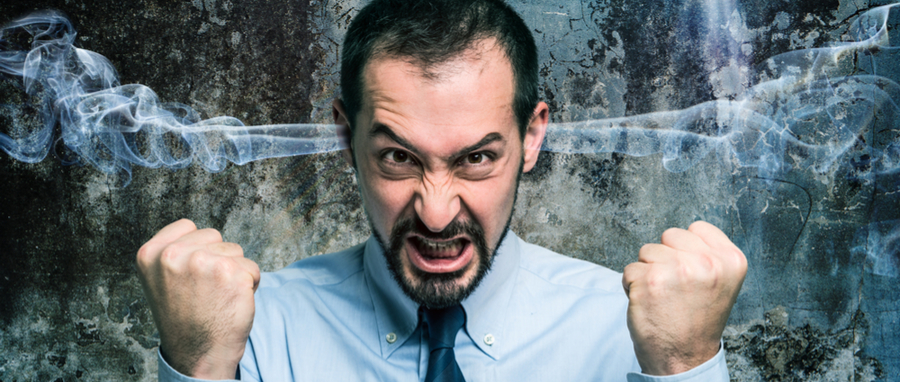The display of men’s anger in mainstream media takes one of two extreme forms. First, a man turns belligerently, blindly, uncontrollably “macho” angry, full of rage. Second, a man is barely able to connect with his anger. He is shy, timid, passive, and suppressed in his emotional expression. Most often, the first man is portrayed by an actor who is tall, large in stature, body mass, and size. The second man is typically shorter, smaller in stature, lacking in muscle definition, and doesn’t present his stature with confidence. Men are taught a seriously dysfunctional message this way. Men are either really, really angry, or completely disconnected from their anger. Anger is “manly” and “macho”. Anger makes men “tough”.
Men can get angry. Men can get very angry. When men get angry and the primal, deeply evolutionary testosterone based rage starts flowing, it can quickly lead to self-destruction, especially when that anger isn’t expressed. Some men express their anger outwardly and cause themselves a great deal of problems in relationships, jobs, or with the law. Other men hold their anger in, causing themselves problems in relationships, jobs, or with the law as well. Most importantly, men cause themselves harm, often turning to dysfunctional, destructive behaviors like substance abuse.
Anger is not a primary emotion. At the root of anger is a combination of fear and sadness. Operating out of the amygdala, as part of the fight or flight response, anger is a mechanism for survival. Shifting the energy of fear from surviving to thriving is the key to using the immense, male energy of anger for growth instead of destruction.
First, men need to learn to create a state of calm which neither inflates nor denies their experience of anger. Mindfulness and meditation can help men find the eye of the storm while being able to observe the outer bands of their emotions at the same time. Next, men identify what the root cause of their anger is. What do they feel threatened by? Where does that threat come from? Can they find the root in their life experiences which contributes to this intense response? Lastly, men find alternative solutions as a path to growth. Frequently, men who have lived with active addiction are quick to shut down a situation in order to avoid difficult emotions. Anger can lead to insight, introspection, and critical growth. Turning to their tools, like journaling, talking to someone, meditating, or exercising, men can learn from their angry experiences, heal their past, and build a solid foundation for a sustainable future in recovery.
Learning how to manage your anger is part of your journey to recovery. At Tree House Recovery in Orange County, California, men are finding freedom from addiction by creating sustainable change for sustainable recovery. Call us today for information about our treatment programs: (855) 202-2138


